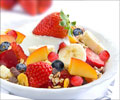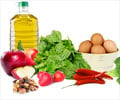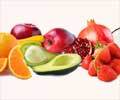A new study assesses the association between dietary flavonoids, their subclasses, quercetin (a specific flavanol), and frailty onset in adults.

Dietary patterns and frailty: a systematic review and meta-analysis
Go to source), a geriatric syndrome that leads to a greater risk of falls, fractures, disability, hospitalization, and mortality.
Want to Stay Strong as You Age? Eat Flavonol-rich Foods Like Blackberries and Apples
Current dietary recommendations for frailty prevention primarily focus on protein intake. However, many other foods may have health benefits. A new study has found that eating flavonol-rich foods, like apples and blackberries, may lower your chances of developing the latter.‘Dietary flavonols and quercetin compounds found in many fruits and vegetables have the potential to be used as a strategy to prevent the development of weakness as we age.’





In this study, individuals from the Framingham Heart Study with no frailty at baseline were included. Intake of total flavonoids, subclasses of flavonoids (flavonols, flavan-3-ols, flavonones, flavones, anthocyanins, and polymeric flavonoids), and quercetin were estimated. Frailty was re-evaluated in 2011–2014. The results suggest that for every 10 mg higher intake of flavonols per day, the odds of frailty were reduced by 20%. Individuals can easily consume 10 mg of flavonols intake per day since one medium-sized apple has about 10 mg of flavonols (2✔ ✔Trusted Source
Higher intake of dietary flavonols, specifically dietary quercetin, is associated with lower odds of frailty onset over 12 years of follow-up among adults in the Framingham Heart Study
Go to source).
Although there was no significant association between total flavonoid intake and frailty, higher flavonols intake (one of the subclasses of flavonoids) was associated with lower odds of developing frailty.
Specifically, higher quercetin intake was the flavonoid that had the strongest association with frailty prevention. This data suggests that there may be particular subclasses of flavonoids that have the most potential as a dietary strategy for frailty prevention (3✔ ✔Trusted Source
Flavonoid-rich foods (FRF): A promising nutraceutical approach against lifespan-shortening diseases
Go to source).
References:
- Dietary patterns and frailty: a systematic review and meta-analysis - (https://pubmed.ncbi.nlm.nih.gov/31038679/ )
- Higher intake of dietary flavonols, specifically dietary quercetin, is associated with lower odds of frailty onset over 12 years of follow-up among adults in the Framingham Heart Study - (https://www.sciencedirect.com/science/article/abs/pii/S0002916523468426?via%3Dihub )
- Flavonoid-rich foods (FRF): A promising nutraceutical approach against lifespan-shortening diseases - (https://www.ncbi.nlm.nih.gov/pmc/articles/PMC7211351/ )












